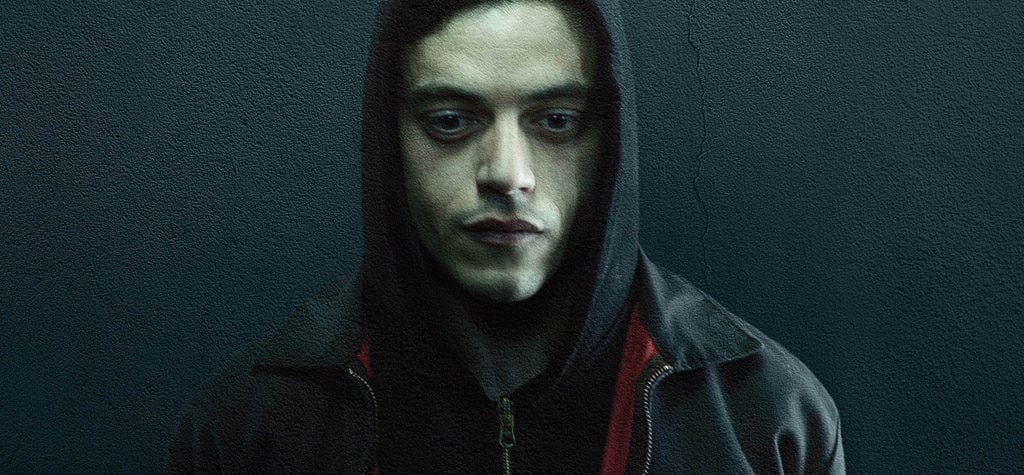
Why S4 of ‘Mr. Robot’ should be the last
Christian Slater suggested the fourth season of Mr. Robot could possibly be its last. With round four airing later this year, the actor who plays the titular character in the show revealed, “I believe that will be the last season,” before stating, “(Show creator) Sam (Esmail) always said it was going to be somewhere in that zone, and he didn’t want to go further than what he could creatively contribute to that storyline.”
While nothing has been confirmed and some rumors suggest a fifth could be on the horizon, we’re of the view that season four is the perfect chance for the show to bow out in style. Here’s why.
S1 came just at the right time
In 2015, Mr. Robot dominated pop culture conversations. USA Network’s trippy, fourth-wall breaking techno thriller packed a lot into its first season. Focusing on the nerdy nihilist Elliot Alderson (Rami Malek) – an IT security engineer by day and vigilante programmer by night – as its episodes progressed viewers were delved into a world of anarchist hacktivism.
Elliot is recruited by Slater’s character to join the hacking group “fsociety” to help bring down the banking conglomerate Evil Corp. The show’s merciless criticism on modern society arrived just at the right time – several years had passed since the great banking collapse, the world was waking up to secretive institutions of power who use surveillance to maintain control over society, and we were in an era where hacktivists and whistleblowers were being hailed as heroes.
Mr. Robot provided us an outlet in which to step into this world and explore these feelings of confusion and distrust in an entertainment setting. It also provided a somewhat satisfying outcome, one that many would hope for but will likely never get the chance to see – Evil Corp’s empire slowly begins to crumble at the foundation.

However, it’s not just the messages on modern day society that made the show so gripping. The opening season of Mr. Robot is incredibly organized, and made all the more fascinating to watch due to its inclusion of a number of dreamlike sequences and the merging of reality and fiction.
As Elliot starts to question his own reality, we as viewers do the same. Who can forget episode four in which our protagonist is going cold turkey from his Morphine addiction, depicting a hallucinatory exploration of his diminishing psyche.
It was a trippy sojourn from the action that had been building up, offering cryptic clues about our central character while also asking questions about free will. The episode pushed forward the idea that had been bugging us up to this point: perhaps our narrator wasn’t as reliable as we had thought.

The characters kept us coming back
So we had the topical commentary, we had the existential themes – what about the characters? Well, they were near perfection. Malek was so well suited to his character’s quirks, you could almost feel the anxiety pulsating from the screen. The whole anarchic anti-establishment shtick coulda got irritating fast, but the actor pulled it off with a deadpan performance that comes off as effortless.
And do we even need to go into Slater? He was overflowing with charisma as the mysterious Mr. Robot, leader of fsociety, which was filled with a number of other colorful characters too. From Darlene (Carly Chaikin), to Romero (Ron Cephas Jones), to Trenton (Sunita Mani), not one came without their own set of quirks and not one single performance was wasted.
Then there were the women vying for Elliot’s affection whether they knew it or not. Okay, so Portia Doubleday as Angela came off a little irritating. But she walked a balanced line between naive & sweet and badass & headstrong, coming into her own as the episodes progressed.
Then there was Elliot’s broken dealer turned gf Shayla, played by Frankie Shaw who, let’s face it, is always dazzling. We also loved the American Psycho side story played through the character of Evil Corp wannabe Tyrell (Martin Wallström).
What season one achieved was something that is rare to find in a sea of remakes, reboots, and franchise fatigue – a compelling drama with a unique premise and strong characters who could hold their own. It was a shining gem in a mass of meh.

S2 & S3 – Had Mr. Robot lost its spark?
Let it be known that we thoroughly enjoyed season two – witnessing the fallout from the Five/Nine hack and watching Darlene become a revolution leader was both unsettling and compelling. However, the second round didn’t shine as much as the first, in part because it got a little too big for its boots.
First up, it was great to see the focus move away from Elliot to give more time for Darlene, Angela, Tyrell, Joanna (Stephanie Corneliussen), and Dom (Grace Gummer) to develop. That said, “this narrative restructure could only fully work if Elliot’s whereabouts remained a mystery throughout the season,” noted Decider. Unfortunately, (spoiler alert) everyone guessed he was in prison from the very beginnings of S2.
“Viewers spent seven episodes waiting for Elliot to tell his ‘friend’ what they already knew,” added Decider. “When the revelation finally did come, it was as frustrating and self-important as you can imagine.”
That’s not to say season two was not an entertaining watch in its own right. However, the story floundered somewhat and it showed – ratings dropped from 1.39 million viewers per episode in S1 to 0.76 million viewers in S2.
By S3, this figure plummeted to almost 0.57 million. Of course, in the rise of the digital age ratings are not everything. But it’s still worth noting such a considerable drop and these figures only contribute to the evidence in the decline of viewers’ interest in the show – the search traffic for Mr. Robot fell dramatically across the three seasons too.

Which is surprising considering season three was arguably the strongest in terms of its character development – it felt a lot more thrilling and there were no revelations for people to guess and subsequently ruin ahead of the big reveal. But it still did not pale in comparison to S1 for a number of reasons.
The show’s overshadowing sense that Donald Trump’s rise to power was bolstered by the Russians or dodgy corporate money did well to fit in with its overriding themes on state control, pointing the lens towards the idea that our lives are controlled by forces that we don’t, or quite frankly can’t understand.
However, as Vox pointed out in its S3 review, the show still feels stuck in 2015:
“Its commentary on Trump often feels clumsy and ill-advised . . . And because the show has been on hiatus for over a year (since September 2016), and because its second season was met with a decidedly mixed reception, and because so much has happened in our world since then, season three tends to feel like an artifact from another place and time, one picked up through accidental transmissions that somehow permeated into our present day.”

Sam Esmail’s ‘Mr. Robot’ has been renewed for a fourth season by USA Network, hot on the heels of a bonkers season three finale.
That’s not to say the show is without its merits. As a whole, Mr. Robot has maintained a level of quality throughout, particularly when it comes to character development, and we’re totally pumped to see where season four takes us.
But all we’re saying is that the suggestion that S4 could be the last as Esmail “didn’t want to go further than what he could creatively contribute to that storyline” perhaps indicates it would be a good time for Mr. Robot to log out for good. In this sense, we could look back on its legacy with fondness rather than fatigue at a show that dragged on past its sell by date.



